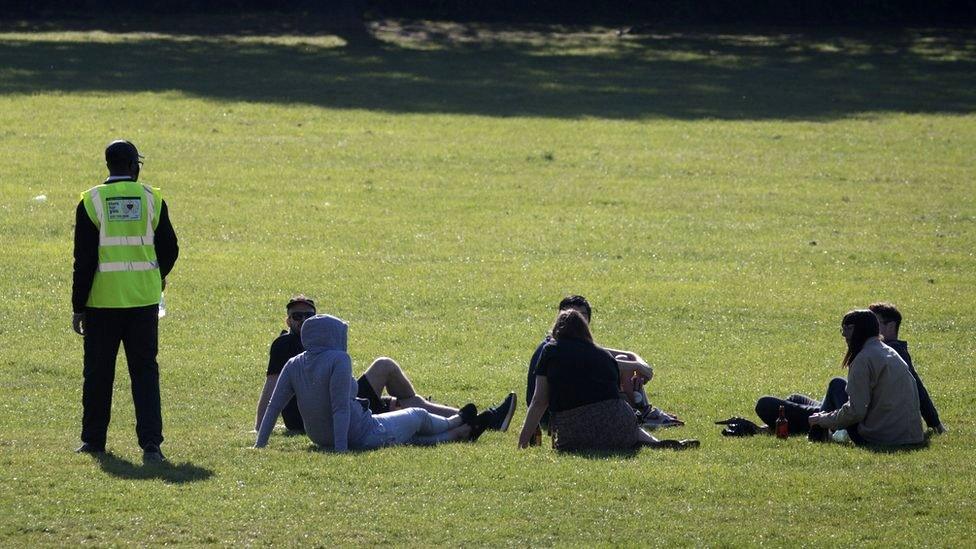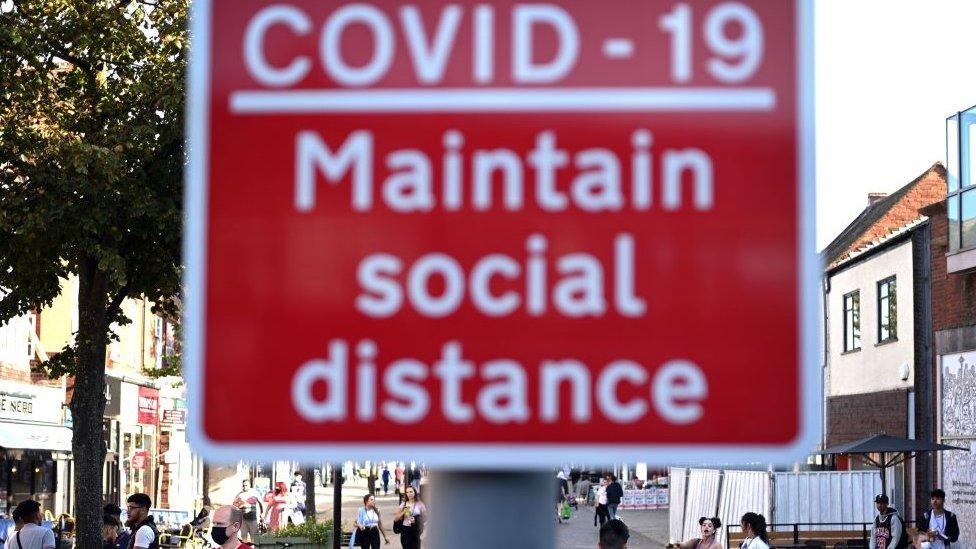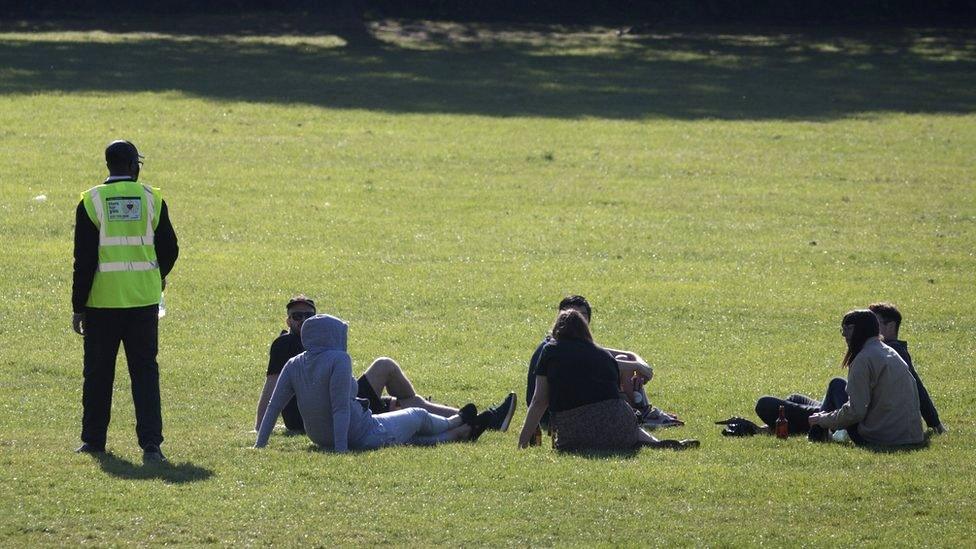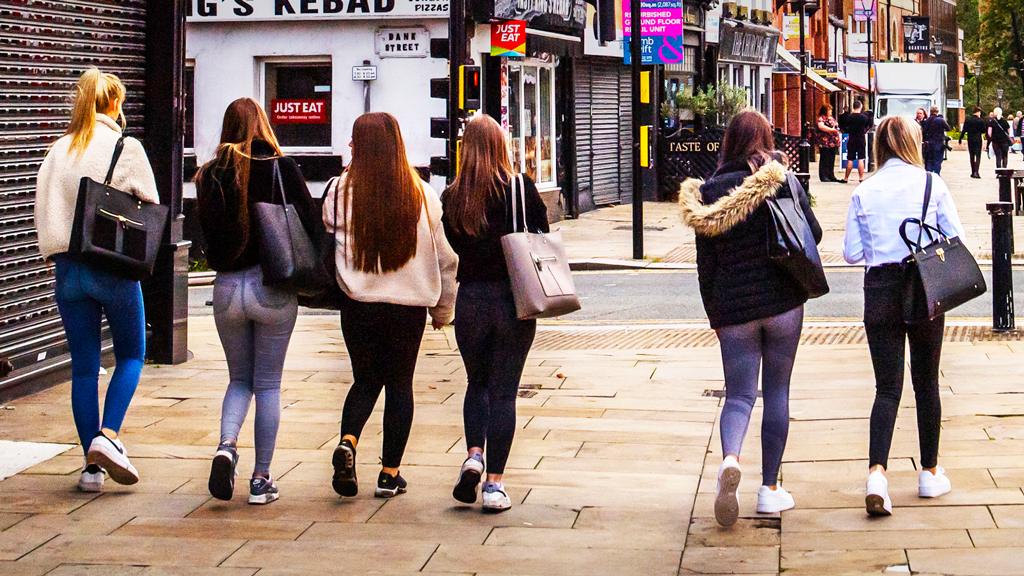Covid-19: Councils get millions of pounds for marshals
- Published
- comments

Local councils in England will receive £30m to fund measures including Covid marshals, to ensure the public and businesses follow coronavirus rules.
A further £30m in government funding will be split between police forces in England and Wales to aid enforcement.
Marshals will not have powers to enforce the law but will advise people on how to follow the rules, Communities Secretary Robert Jenrick said.
The Local Government Association warned authorities are at "tipping point".
The government said the funding would help step up enforcement of coronavirus rules in a bid to tackle the rise of infections.
Mr Jenrick told BBC Radio 4's Today programme that Covid marshals could knock on doors, as they had done in places such as Leicester, but would not be able to enter properties.
He said: "They won't have the power to enforce the law so if there are particularly egregious examples they would need to escalate that to the police and I think that is the right thing to do. We are not expecting local council officers to get involved in that."
Some of the funding will go towards environmental health officers who do have enforcement powers to ensure businesses obey the restrictions, Mr Jenrick said.
He said he expected the funding to be "used sensitively to help to educate, inform and engage members of the public".
Nesil Caliskan, from the Local Government Association (LGA), welcomed the funding, but said in many areas regulatory services are already "at tipping point".
He said with councils leading local work to tackle Covid-19 the government needed to ensure they had the funding to maintain "vital trading standards and environmental health services over the next six months and beyond".

SOCIAL DISTANCING: How have rules on meeting friends changed?
SOCIAL LIFE: What are the rules when I go to the pub?
LOCAL LOCKDOWNS: What happens if you have one?

The additional funding for police forces comes after calls from Martin Hewitt, chairman of the National Police Chiefs' Council (NPCC), for more support for "specific Covid patrolling activity".
NPCC figures showed that after a 28% drop in crime at the height of lockdown, in the four weeks to 30 August levels were at 3% below those in the same period last year.
Mr Hewitt said: "This additional funding will go some way to covering the cost of this at a time when crime and demand on policing is almost back to the levels seen before the pandemic."
Home Secretary Priti Patel said the government had been clear with infections rising "we will not allow a small minority of people to reverse our hard-won progress" and said the funding would strengthen the police's role in enforcing the law.
John Apter, chairman of the Police Federation of England and Wales, said officers must keep their discretion about how best to use resources with forces already "overstretched".
Labour's shadow home secretary Nick Thomas-Symonds said the funding was not enough for forces and councils already under pressure even before the pandemic.
"They have come under huge strain, not least as they went into this crisis weakened by a decade of cuts that saw officer numbers fall and council funding slashed," he said.
The Home Office has also launched a scheme to allow police forces to recover losses due to the pandemic from income generating work, such as policing sporting events.
They will be able to recoup 75p in every £1 of budgeted income after absorbing 5% of the losses.

YOU, ME AND THE BIG C: About Cancer Treatment and Covid-19
LONG COVID: What's the science behind the long term symptoms?

- Published16 September 2020

- Published15 September 2020

- Published8 October 2020
